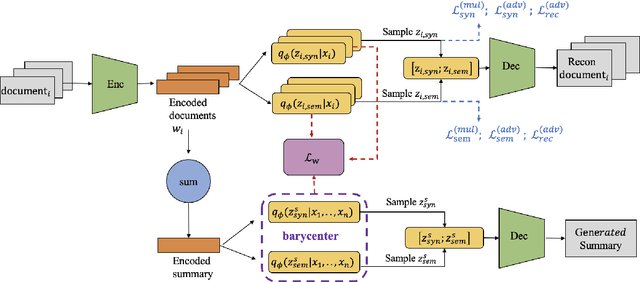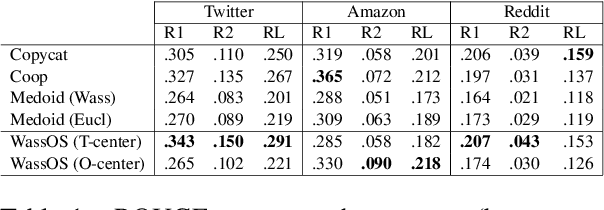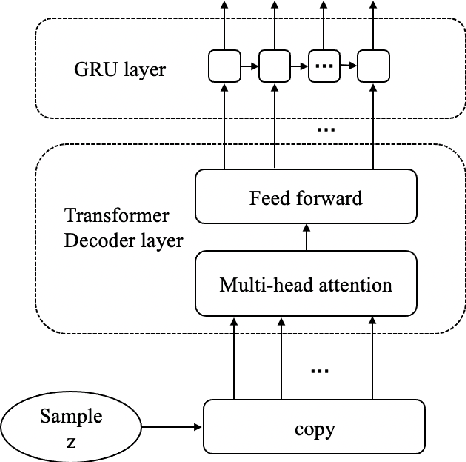Unsupervised Opinion Summarisation in the Wasserstein Space
Paper and Code
Nov 27, 2022



Opinion summarisation synthesises opinions expressed in a group of documents discussing the same topic to produce a single summary. Recent work has looked at opinion summarisation of clusters of social media posts. Such posts are noisy and have unpredictable structure, posing additional challenges for the construction of the summary distribution and the preservation of meaning compared to online reviews, which has been so far the focus of opinion summarisation. To address these challenges we present \textit{WassOS}, an unsupervised abstractive summarization model which makes use of the Wasserstein distance. A Variational Autoencoder is used to get the distribution of documents/posts, and the distributions are disentangled into separate semantic and syntactic spaces. The summary distribution is obtained using the Wasserstein barycenter of the semantic and syntactic distributions. A latent variable sampled from the summary distribution is fed into a GRU decoder with a transformer layer to produce the final summary. Our experiments on multiple datasets including Twitter clusters, Reddit threads, and reviews show that WassOS almost always outperforms the state-of-the-art on ROUGE metrics and consistently produces the best summaries with respect to meaning preservation according to human evaluations.
 Add to Chrome
Add to Chrome Add to Firefox
Add to Firefox Add to Edge
Add to Edge